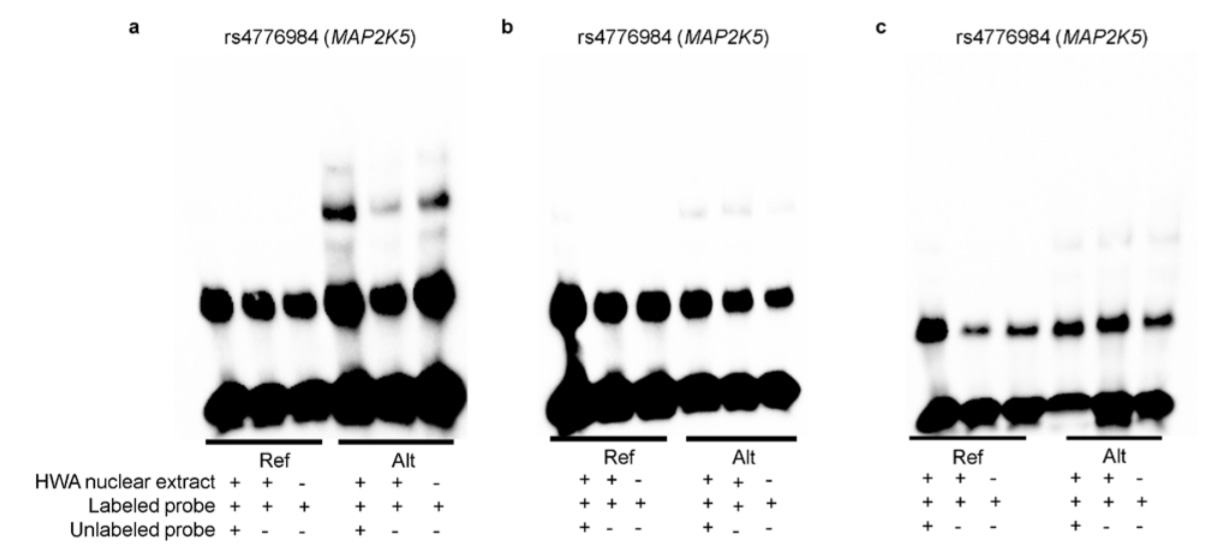CTCF (NM_006565) Human Recombinant Protein
CAT#: TP720882
Purified recombinant protein of Human CCCTC-binding factor (zinc finger protein) (CTCF), transcript variant 1
Frequently bought together (1)
Other products for "CTCF"
Specifications
| Product Data | |
| Species | Human |
| Expression Host | E. coli |
| Expression cDNA Clone or AA Sequence |
Met1-Ile154
|
| Tag | Tag Free |
| Predicted MW | 16.9 kDa |
| Concentration | lot specific |
| Purity | >95% as determined by SDS-PAGE and Coomassie blue staining |
| Buffer | Provided lyophilized from a 0.2 μm filtered solution of 20 mM Tris-HCl, 150 mM NaCl |
| Bioactivity | EMSA reaction positive control (PMID: 29666371) |
| Endotoxin | Endotoxin level is < 0.1 ng/µg of protein (< 1 EU/µg) |
| Reconstitution | Always centrifuge tubes before opening. Do not mix by vortex or pipetting. Dissolve the lyophilized protein in ddH2O. It is not recommended to reconstitute a concentration less than 100 µg/ml. Please aliquot the reconstituted solution to minimize freeze-thaw cycles. |
| Storage | Store at -80°C. |
| Stability | Stable for at least 6 months from date of receipt under proper storage and handling conditions. |
| Reference Data | |
| RefSeq | NP_006556 |
| Locus ID | 10664 |
| UniProt ID | P49711 |
| Cytogenetics | 16q22.1 |
| Refseq Size | 3946 |
| Refseq ORF | 2181 |
| Synonyms | CFAP108; FAP108; MRD21 |
| Summary | This gene is a member of the BORIS + CTCF gene family and encodes a transcriptional regulator protein with 11 highly conserved zinc finger (ZF) domains. This nuclear protein is able to use different combinations of the ZF domains to bind different DNA target sequences and proteins. Depending upon the context of the site, the protein can bind a histone acetyltransferase (HAT)-containing complex and function as a transcriptional activator or bind a histone deacetylase (HDAC)-containing complex and function as a transcriptional repressor. If the protein is bound to a transcriptional insulator element, it can block communication between enhancers and upstream promoters, thereby regulating imprinted expression. Mutations in this gene have been associated with invasive breast cancers, prostate cancers, and Wilms' tumors. Alternatively spliced transcript variants encoding different isoforms have been found for this gene. [provided by RefSeq, Jul 2010] |
| Protein Families | Transcription Factors |
Documents
| FAQs |
| SDS |
Resources
Recombinant Protein Resources |
{0} Product Review(s)
0 Product Review(s)
Submit review
Be the first one to submit a review
Product Citations
*Delivery time may vary from web posted schedule. Occasional delays may occur due to unforeseen
complexities in the preparation of your product. International customers may expect an additional 1-2 weeks
in shipping.






























































































































































































































































 Germany
Germany
 Japan
Japan
 United Kingdom
United Kingdom
 China
China

